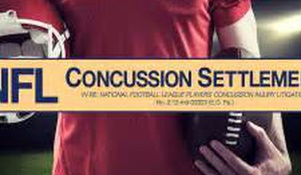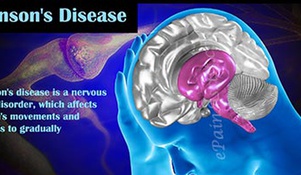Why some NFL Concussion Claims are being Audited

On Friday April 13, 2018 the New York Times and several other media outlets reported that the NFL has asked a federal judge to appoint a special investigator to probe what it describes as a widespread fraud that has resulted in hundreds of millions of dollars in false claims to a fund meant to compensate former players for head injuries.
Attorney Brad Karp, whose firm represents the NFL said that "Fraud threatens the integrity of the settlement and the prompt payment of legitimate claims. There is significant evidence of fraudulent claims being advanced by unscrupulous doctors, lawyers and even players. The appointment of a special investigator was specifically contemplated in the agreement and will provide important additional tools to assist the independent, court-appointed administrators in identifying fraudulent claims and related misconduct."
Christopher Seeger, the lead attorney for the players, said "We have previously expressed concerns about potentially fraudulent claims and agree the appointment of a special investigator is appropriate. However, we will not allow this small number of claims to be used as an excuse by the NFL to deny payment to legitimately injured former players. Unlike other NFL benefits programs, this settlement is overseen by the court, and the League cannot escape its responsibility. We will make sure that former NFL players and their families receive every benefit they are entitled to under this agreement."
As a former NFL player, I want to see that every player who has received a legitimate diagnosis of ALS, Parkinson’s, Alzheimer’s, Level 1.5 and Level 2 cognitive impairment receives a monetary award. At the same time, I think it’s important to prevent fraud and make sure that everyone - especially lawyers representing players and doctors diagnosing players - are playing by the rules.
A motion was recently filed by a group of four (4) law firms known as NCFL “Neurocognitive Football Lawyers” to prohibit the Claims Administrator from interviewing physicians who have diagnosed the former players they represent. The Claims Administrator's response to their motion gives us a glimpse into why they are auditing some claims more than others.
The Claims Administrator said “We must contact doctors who are the subject of our Audits to ask questions during our investigations. Otherwise we have no way to assess the doctor’s methodology and the accuracy and reliability of a diagnosis to determine whether the doctor engaged in misrepresentation, omission, or concealment, or perhaps was misled by a lawyer, the player, or someone else as to the player’s true condition. We may need to ask general questions of the doctors, player-specific questions regarding medical histories or diagnoses, or both.
This is a major reason these Audit investigations require time to finish. Our goal is to start and conclude an Audit in no more than 90 days, though on many claims we can dispel our concerns much more quickly than that and return the claim to normal claims processing. On many others, however, we need greater details on the claims and what led to the diagnoses asserted. It is often especially difficult to secure the timely cooperation of the diagnosing physicians, who give us many reasons, ranging from personal illness, demands for compensation, being busy, or simply insult at being questioned about their diagnoses, that delay our receipt of the information and prolong the Audit investigation.
We beg, cajole and plead with these persons to send us the needed materials, but are not always successful. Though we have the clear power - some might say duty, rather than taking longer trying to finish the Audit - to deny claims for lack of cooperation with the Audit, we have not yet exercised that remedy. Our goal is to provide the persons under audit with the time needed to explain things adequately so we do not unfairly issue an adverse Audit Report to the Parties and the Special Masters.”
The NCFL has 188 players under retainer agreements. To date, they have submitted 143 claims: 74 claims for level 1.5 Neurocognitive Impairment; 66 claims for Level 2 Neurocognitive Impairment; and 3 claims for Alzheimer’s Disease. 131 of the NCFL claims (including eight that they previously denied) are under Audit investigations.
According to the Claims Administrator, a key issue in nearly every Audit investigation is whether the diagnosing physician’s stated diagnosis of a player’s condition is based on, or contains any, misrepresentations or omissions of material fact. Thus, a significant aspect of an Audit investigation is trying to discern how the physician reached that conclusion, any external factors affecting his or her perspective or incentives, whether the information relied upon and given is reliable and genuine, and other factors bearing on the reliability and integrity of the diagnosis asserted. The Claims Administrator is not required to find that a misrepresentation or omission was made with fraudulent intent.
The Claims Administrator said “We have found that many of the Pre-Effective Date claims for neurocognitive impairment—Level 1.5, Level 2 and as an element of Alzheimer’s Disease - have attributes that cast doubt on the legitimacy of the claims. We have questions about such facts, including:
1) The physician’s methodologies and testing protocols;
2) Represented results;
3) Possible bias or influence;
4) Use or non-use of neuropsychological testing;
5) Disregard of results inconsistent with the diagnosis rendered or perhaps preferred;
6) Failure to do necessary testing;
7) Disregard of facts regarding the Player’s functional and mental capacities;
8) The apparently planned omission of tests or consideration of facts that would lead to a lower claim value or no Qualifying Diagnosis at all;
9) Performing diagnoses in high volumes and in numbers physically impossible to accomplish in the time allowed;
10) Swearing reliance on evidence that did not exist until a later date;
11) Reports showing identical vital signs and scores on many different Players;
12) Financial incentives to render payable diagnoses;
13) Players traveling great distances to see a particular physician - often a high volume one - rather than being examined by the neurologists and neuropsychologists where the Player lives;
14) Diagnosing physicians finding abnormally high percentages of Players with Level 1.5 or Level 2 conditions among all those who saw the doctor;
15) Tips to us that Players are being coached by their lawyers or other Players on how to secure a Qualifying Diagnosis; and
16) Tips that lawyers have “guaranteed” a Qualifying Diagnosis from their chosen physicians if a Player hires that lawyer.
The Claims Administrator also said there are a number of “red flags” that could be grounds for initiating an audit. They include:
(1) alteration of documents;
(2) questionable signatures;
(3) duplicative documents submitted on claims;
(4) the number of claims from similar addresses or supported by the same physician or office of physicians; and
(5) data metrics indicating patterns of fraudulent submissions.
The specific reasons for why the Claims Administrator is auditing 131 of the NCFL claims is much too lengthy to write about here, but for those who want to read the court document, just click on this link.
In conclusion, the Claims Administrator said “For the foregoing reasons, the Claims Administrator submits that NCFL’s Motions should both be denied. To preserve the integrity of the Program and ensure that only valid claims based on reliable diagnoses are paid out of the Monetary Award Fund, we ask that we be permitted to follow the Audit procedures in the Settlement Agreement and Audit Rules adopted by the Special Masters.”
It is important to know that a majority of claims that have been audited by the Claims Administrator are perfectly fine. Most lawyers and players that have been audited have followed all the processes and procedures outlined in the Settlement.
If a lawyer or doctor has nothing to hide, they shouldn’t be concerned with providing the required information that is requested during an audit.
It’s unfortunate that some players have been caught up in the audit process, but this is a provision of the Settlement that we agreed to when the $675 million cap on the Settlement was lifted. In retrospect, that was a smart move because the amount of money the NFL will have to pay out over the next 65 years could far exceed that amount.
To date, over 411 million in Monetary Award Notices have been sent to 377 players. 222 former players have received their awards totaling $171,964,464. Another 24 players have checks in the mail totaling $17.6 million. $221,756,328 in awards to 166 players are being held in reserve until the NFL or the player decide whether they want to appeal a decision.
In addition to that, the NFL has agreed to spend $75 million on the BAP, $10 million on the Education Fund, $12 million in administrative costs, $4 million in notice costs, $102 million (to date) that has been withheld from awards for the payment of player liens, and last but not least, $112 million in attorney fees.
In the end, this Settlement could cost the NFL well over one billion dollars.


